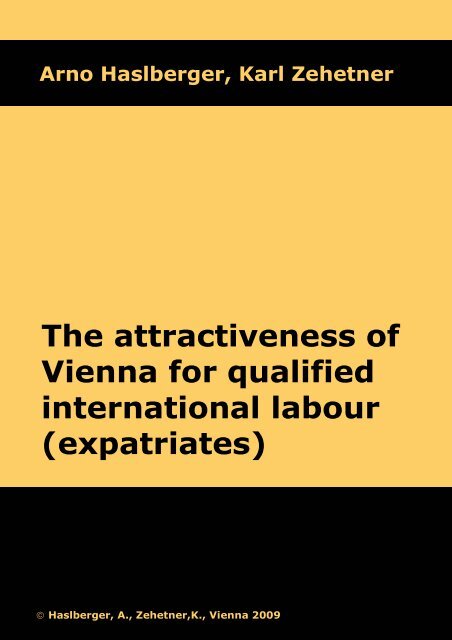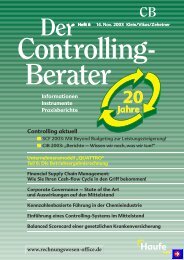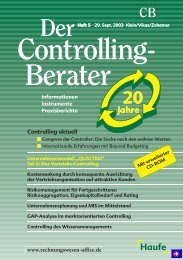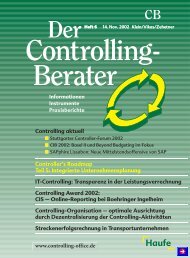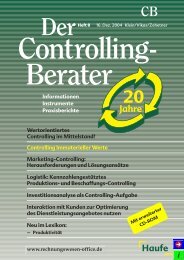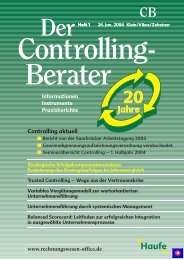The attractiveness of Vienna for qualified international labour
The attractiveness of Vienna for qualified international labour
The attractiveness of Vienna for qualified international labour
You also want an ePaper? Increase the reach of your titles
YUMPU automatically turns print PDFs into web optimized ePapers that Google loves.
Arno Haslberger, Karl Zehetner<br />
<strong>The</strong> <strong>attractiveness</strong> <strong>of</strong><br />
<strong>Vienna</strong> <strong>for</strong> <strong>qualified</strong><br />
<strong>international</strong> <strong>labour</strong><br />
(expatriates)<br />
© Haslberger, A., Zehetner,K., <strong>Vienna</strong> 2009
<strong>The</strong> <strong>attractiveness</strong> <strong>of</strong> <strong>Vienna</strong> <strong>for</strong> <strong>qualified</strong><br />
<strong>international</strong> <strong>labour</strong> (expatriates)<br />
A research project conducted by Webster University <strong>Vienna</strong> with financial support<br />
from the Press and In<strong>for</strong>mation Service <strong>of</strong> the City <strong>of</strong> <strong>Vienna</strong> and the <strong>Vienna</strong><br />
Business Agency<br />
Authors:<br />
Univ.-Pr<strong>of</strong>. (WV) Mag. Dr. Arno Haslberger MSIR<br />
Senior Research Pr<strong>of</strong>essor <strong>of</strong> Management<br />
Webster University <strong>Vienna</strong><br />
Univ.-Pr<strong>of</strong>. (PEF) DI Dr. Karl Zehetner<br />
Pr<strong>of</strong>essor <strong>of</strong> Business Administration<br />
PEF Private University <strong>for</strong> Management <strong>Vienna</strong><br />
Assisted by:<br />
Alexandru Friptu<br />
MBA Candidate<br />
Webster University <strong>Vienna</strong><br />
For more in<strong>for</strong>mation contact:<br />
Dr. Haslberger: +43 676 921 1794<br />
arnohaslberger24@webster.edu<br />
or<br />
Dr. Zehetner: +43 699 10200620<br />
karl.zehetner@pef.co.at<br />
www.res.co.at<br />
page 2 / 32
Table <strong>of</strong> Contents<br />
1. Introduction ........................................................................................................ 5<br />
1.1. Objectives <strong>of</strong> the study................................................................................. 5<br />
1.2. Methodology .................................................................................................... 5<br />
1.2.1. Key research questions......................................................................... 5<br />
1.2.2. Web-based questionnaire...................................................................... 5<br />
1.2.3. Target group.......................................................................................... 6<br />
1.3. Participants .................................................................................................. 6<br />
2. Quality <strong>of</strong> living and infrastructure................................................................. 10<br />
2.1. Quality <strong>of</strong> living: a high level <strong>of</strong> satisfaction................................................ 10<br />
2.2. Infrastructure: <strong>Vienna</strong> gets top marks on several counts............................ 11<br />
3. <strong>Vienna</strong>’s schools and universities.................................................................. 15<br />
4. Public services ................................................................................................. 17<br />
4.1. Medical services: satisfactory to good........................................................ 17<br />
4.2. Public administration: acceptable, somewhat bureaucratic........................ 17<br />
5. <strong>Vienna</strong> as a business location: underestimated abroad............................... 19<br />
6. Cleanliness and friendliness........................................................................... 21<br />
6.1. Irritation about dirt and cigarette smoke ..................................................... 21<br />
6.2. Experiences with xenophobia..................................................................... 24<br />
7. Impact on expatriates’ careers........................................................................ 27<br />
7.1. Why people choose <strong>Vienna</strong>........................................................................ 27<br />
7.2. <strong>Vienna</strong> benefits careers.............................................................................. 28<br />
7.3. Careers – a direct comparison with London............................................... 29<br />
8. Summary and Outlook..................................................................................... 31<br />
page 3 / 32
List <strong>of</strong> Illustrations<br />
FIGURE 1: AGE STRUCTURE.............................................................................................................................................7<br />
FIGURE 2: LENGTH OF STAY IN VIENNA..............................................................................................................................8<br />
FIGURE 3: COUNTRY OF CITIZENSHIP.................................................................................................................................1<br />
FIGURE 4: LANGUAGE SKILLS ...........................................................................................................................................1<br />
FIGURE 5: SIGNIFICANCE OF GERMAN LANGUAGE SKILLS FOR LIFE IN VIENNA ............................................................................1<br />
FIGURE 6: PERSONAL SAFETY...........................................................................................................................................1<br />
FIGURE 7: PROSPERITY...................................................................................................................................................1<br />
FIGURE 8: SATISFACTION WITH PUBLIC TRANSPORTATION .....................................................................................................1<br />
FIGURE 9: SATISFACTION WITH ROAD TRAFFIC.....................................................................................................................1<br />
FIGURE 10: SATISFACTION WITH THE AIRPORT ....................................................................................................................1<br />
FIGURE 11: SATISFACTION WITH TELEPHONE SERVICES .........................................................................................................1<br />
FIGURE 12: SATISFACTION WITH INTERNET SERVICES............................................................................................................1<br />
FIGURE 13: SATISFACTION WITH TV SERVICES ....................................................................................................................1<br />
FIGURE 14: SATISFACTION WITH (INTERNATIONAL) SCHOOLS.................................................................................................1<br />
FIGURE 15: SATISFACTION WITH UNIVERSITIES....................................................................................................................1<br />
FIGURE 16: SATISFACTION WITH EDUCATION IN THE MOTHER TONGUE ....................................................................................1<br />
FIGURE 17: QUALITY AND ACCESSIBILITY OF MEDICAL SERVICES..............................................................................................1<br />
FIGURE 18: QUALITY AND ACCESSIBILITY OF PUBLIC ADMINISTRATION .....................................................................................1<br />
FIGURE 19: QUALITY AND ACCESSIBILITY OF EXPATRIATE SERVICES ..........................................................................................1<br />
FIGURE 20: IMAGE OF VIENNA AS A BUSINESS CENTRE FOR CEE.............................................................................................1<br />
FIGURE 21: IMAGE OF VIENNA AS A CONGRESS CENTRE ........................................................................................................1<br />
FIGURE 22: IMAGE OF VIENNA AS A HIGH-TECH CENTRE .......................................................................................................1<br />
FIGURE 23: SATISFACTION REGARDING DIRT IN THE STREETS..................................................................................................1<br />
FIGURE 24: SATISFACTION WITH THE NOISE LEVEL ...............................................................................................................1<br />
FIGURE 25: SATISFACTION WITH THE AIR QUALITY ...............................................................................................................1<br />
FIGURE 26: SATISFACTION WITH THE WATER QUALITY ..........................................................................................................1<br />
FIGURE 27: SATISFACTION REGARDING SMOKING IN RESTAURANTS.........................................................................................1<br />
FIGURE 28: THE MAJORITY OF RESPONDENTS FIND VIENNA TO BE AN UNFRIENDLY CITY...............................................................1<br />
FIGURE 29: AGREEMENT WITH “I FEEL WELCOME IN VIENNA” ...............................................................................................1<br />
FIGURE 30: PREJUDICE AGAINST FOREIGNERS .....................................................................................................................1<br />
FIGURE 31: VIENNA AS A CULTURAL MELTING POT...............................................................................................................1<br />
FIGURE 32: MOTIVES FOR CHOOSING VIENNA ....................................................................................................................1<br />
FIGURE 33: DOES WORKING IN VIENNA BENEFIT ONE’S CAREER?............................................................................................1<br />
FIGURE 34: VIENNA’S REPUTATION FOR ENHANCING CAREER PROSPECTS .................................................................................1<br />
FIGURE 35: RECOMMENDATION TO COLLEAGUES ................................................................................................................1<br />
FIGURE 36: SIGNIFICANCE OF VIENNA’S REPUTATION AS A GLOBAL CENTRE FOR BUSINESS ...........................................................1<br />
FIGURE 37: AGREEMENT WITH “I LIKE BEING IN VIENNA” .....................................................................................................1<br />
FIGURE 38: AGREEMENT WITH “I WOULD DECIDE AGAIN TO MOVE TO VIENNA”........................................................................1<br />
FIGURE 39: AGREEMENT WITH “OVERALL, I AM SATISFIED WITH LIVING IN VIENNA” ..................................................................1<br />
page 4 / 32
1. Introduction<br />
1.1. Objectives <strong>of</strong> the study<br />
<strong>Vienna</strong>, the capital city <strong>of</strong> Austria, geographically and culturally near the new EU<br />
Member States and home to several UN organisations, is the place <strong>of</strong> work <strong>for</strong><br />
<strong>international</strong> managers, experts and administrative staff <strong>of</strong> <strong>international</strong> companies<br />
and organisations as well as <strong>for</strong> <strong>international</strong> artists, musicians, scientists and<br />
journalists. <strong>The</strong>se members <strong>of</strong> the <strong>international</strong> <strong>qualified</strong> work<strong>for</strong>ce, who are here<br />
temporarily or in some cases permanently, contribute to the affluence <strong>of</strong> <strong>Vienna</strong> and<br />
increase the economic, scientific and cultural competitiveness <strong>of</strong> the city and <strong>of</strong><br />
Austria as a whole. <strong>The</strong> impressions they gather during their stay quite possibly have<br />
more <strong>of</strong> an effect on the reputation <strong>of</strong> <strong>Vienna</strong> and Austria abroad than promotional<br />
brochures and image campaigns.<br />
<strong>The</strong> presence <strong>of</strong> <strong>qualified</strong> <strong>international</strong> managers and pr<strong>of</strong>essionals significantly<br />
increases the competitiveness <strong>of</strong> a city as a business location, making them a<br />
valuable resource worth courting. It is there<strong>for</strong>e <strong>of</strong> interest to find out how attractive<br />
<strong>Vienna</strong> is <strong>for</strong> them, and also to ask about the reasons why. <strong>The</strong> in<strong>for</strong>mation gathered<br />
can be used as a basis <strong>for</strong> devising ways <strong>of</strong> further enhancing the city’s<br />
<strong>attractiveness</strong>. Also, a survey <strong>of</strong> <strong>international</strong> persons living in <strong>Vienna</strong> can provide<br />
insight into differences between self-perception and perception by others <strong>of</strong> the city<br />
and make it easier to understand the reasons behind sometimes surprisingly<br />
diverging assessments <strong>of</strong> <strong>Vienna</strong> or Austria.<br />
1.2. Methodology<br />
1.2.1. Key research questions<br />
<strong>The</strong> present study seeks to answer the following questions:<br />
1. How attractive is <strong>Vienna</strong> as a working and living location <strong>for</strong> highly <strong>qualified</strong><br />
<strong>international</strong> managers and pr<strong>of</strong>essionals, and how can <strong>Vienna</strong> enhance its<br />
<strong>attractiveness</strong>?<br />
2. What influence does working in <strong>Vienna</strong> have on the careers <strong>of</strong> <strong>qualified</strong><br />
<strong>international</strong> workers?<br />
3. To what extent do <strong>qualified</strong> <strong>international</strong> workers feel accepted and at home in<br />
<strong>Vienna</strong>?<br />
1.2.2. Web-based questionnaire<br />
To answer these questions, we conducted a quantitative study. <strong>The</strong> questionnaire<br />
used <strong>for</strong> this purpose was divided into three parts:<br />
<strong>The</strong> questions <strong>for</strong> the first part (on the <strong>attractiveness</strong> <strong>of</strong> <strong>Vienna</strong>) were developed by<br />
the authors <strong>of</strong> the study together with leading members <strong>of</strong> the <strong>Vienna</strong> Business<br />
Agency and the Press and In<strong>for</strong>mation Service <strong>of</strong> the City <strong>of</strong> <strong>Vienna</strong> (MA53). <strong>The</strong><br />
questions concerned the participants’ expectations be<strong>for</strong>e coming to <strong>Vienna</strong> and their<br />
assessment <strong>of</strong> the city after arrival.<br />
<strong>The</strong> questions <strong>for</strong> the second part (on the impact <strong>of</strong> working in <strong>Vienna</strong> on career<br />
prospects) were designed to correspond closely to those used in a parallel study on<br />
the <strong>attractiveness</strong> <strong>of</strong> London <strong>for</strong> <strong>qualified</strong> <strong>international</strong> <strong>labour</strong> (Dickmann and Mills,<br />
page 5 / 32
2005) 1 and are based on the concept <strong>of</strong> career capital developed by DeFillippi and<br />
Arthur (1994). 2 This approach allows direct comparisons <strong>of</strong> the strengths and<br />
weaknesses <strong>of</strong> the two cities different career aspects.<br />
<strong>The</strong> questions <strong>for</strong> the third part (on demography and German language skills) are<br />
commonly used standard questions.<br />
<strong>The</strong> questionnaire was posted on the Internet between October 2007 and February<br />
2008. In addition to the multiple-choice questions designed <strong>for</strong> quantitative<br />
evaluation, the questionnaire <strong>of</strong>fered respondents the opportunity to make written<br />
comments, thus providing a further source <strong>of</strong> data. More than a third <strong>of</strong> the<br />
respondents made use <strong>of</strong> this possibility. Many felt a great need to communicate<br />
their experiences.<br />
1.2.3. Target group<br />
<strong>The</strong> subjects <strong>of</strong> this study are well-<strong>qualified</strong> expatriates. We define expatriates as<br />
persons temporarily or permanently residing in another country without intending to<br />
become citizens <strong>of</strong> that country. For the purposes <strong>of</strong> the study, persons are<br />
considered well-<strong>qualified</strong> if they hold a post-secondary (pr<strong>of</strong>essional) or academic<br />
degree and/or a pr<strong>of</strong>essional post that usually requires post-secondary education or<br />
many years <strong>of</strong> pr<strong>of</strong>essional experience.<br />
<strong>The</strong> questionnaire was directed at expatriates who have come to <strong>Vienna</strong> <strong>for</strong> reasons<br />
<strong>of</strong> work or education. In order to be able to target this group as precisely as possible,<br />
we contacted appropriate institutions and organisations. Several institutions (e.g. the<br />
American Chamber <strong>of</strong> Commerce) provided us with the e-mail addresses <strong>of</strong> their<br />
members or in<strong>for</strong>med their members about the study directly. Others mentioned the<br />
study in their staff publications (e.g. the International Atomic Energy Agency in its<br />
electronic newsletter <strong>for</strong> staff members, the Austro-Arab Chamber <strong>of</strong> Commerce in its<br />
newsletter <strong>for</strong> members or the <strong>Vienna</strong> Service Office <strong>for</strong> employees <strong>of</strong> UN<br />
organisations and their families in its newsletter.) <strong>The</strong> <strong>international</strong> students and<br />
alumni <strong>of</strong> Webster University <strong>Vienna</strong> were in<strong>for</strong>med <strong>of</strong> the study by e-mail. This<br />
university has a particularly high proportion <strong>of</strong> <strong>international</strong> students (approx. 75%).<br />
1.3. Participants<br />
We received a total <strong>of</strong> 329 completed questionnaires. <strong>The</strong> demographic data show<br />
that we were successful in reaching the target group:<br />
• Approx. 90% <strong>of</strong> the respondents have university degree.<br />
• Approx. 50% are managers, the other half are pr<strong>of</strong>essionals, administrative staff<br />
and students (the latter comprise just over 5% <strong>of</strong> the participants).<br />
• A total <strong>of</strong> 56 nationalities are represented. Two hundred and thirty-one respondents<br />
named their country <strong>of</strong> origin. Of these, 20% are from the USA, seven per cent<br />
from the UK, six per cent from Australia, four per cent from Canada and around<br />
three per cent from France, South Africa, Germany and Japan respectively.<br />
1 M. Dickmann and T. Mills, Report <strong>for</strong> Think London on the Impact <strong>of</strong> London on International Careers<br />
<strong>of</strong> Overseas Individuals (London, 2005).<br />
2 R. DeFillippi and M. Arthur, „<strong>The</strong> boundaryless career: a competency-based perspective“ in: Journal<br />
<strong>of</strong> Organizational Behavior, 15/4 (1994), pp. 307-324.<br />
page 6 / 32
• About one quarter <strong>of</strong> the respondents are employed in <strong>international</strong> organisations<br />
(e.g. UN bodies); the other three quarters are distributed over many parts <strong>of</strong> the<br />
secondary and tertiary sectors.<br />
• Eighty per cent <strong>of</strong> the respondents are here with their spouses or partners, 43%<br />
live with their children in <strong>Vienna</strong>.<br />
• <strong>The</strong> gender split is even (51% men).<br />
• Persons in the 30 to 50 year old age bracket account <strong>for</strong> around 60%.<br />
• Over 90% have lived in <strong>Vienna</strong> <strong>for</strong> more than a year.<br />
Age Structure<br />
60-75<br />
8.5%<br />
20-29<br />
14.5%<br />
50-59<br />
17.9%<br />
40-49<br />
25.5%<br />
30-39<br />
33.6%<br />
(n=235)<br />
Figure 1: Age structure<br />
page 7 / 32
How long have you lived in <strong>Vienna</strong> so far?<br />
less than 1 year<br />
7.6%<br />
more than 10<br />
24.1%<br />
1-2<br />
12.2%<br />
5-10<br />
22.8%<br />
2-5<br />
33.3%<br />
(n=234)<br />
Figure 2: Length <strong>of</strong> stay in <strong>Vienna</strong><br />
Country <strong>of</strong> citizenship<br />
USA<br />
20.2%<br />
Other Non-EU<br />
34.3%<br />
UK<br />
7.1%<br />
Australia<br />
6.1%<br />
Other EU<br />
16.2%<br />
Japan<br />
3.0%<br />
Canada<br />
4.0%<br />
France<br />
3.0%<br />
South Africa<br />
3.0%<br />
Germany<br />
3.0%<br />
(n=231)<br />
Figure 3: Country <strong>of</strong> citizenship<br />
page 8 / 32
<strong>The</strong> participants in the study were asked about their German language skills. On a<br />
scale from 1 (“not at all”) to 5 (“like a native speaker”), around half <strong>of</strong> the respondents<br />
placed themselves in one <strong>of</strong> the two upper categories <strong>for</strong> reading, speaking and<br />
understanding, respectively. Respondents’ assessment <strong>of</strong> their writing ability is<br />
markedly lower: only ca. 30% give themselves one <strong>of</strong> the two top marks here. <strong>The</strong><br />
importance <strong>of</strong> German language skills <strong>for</strong> living in <strong>Vienna</strong> is rated as being very high:<br />
46% consider them to be “extremely important”.<br />
How well do you ... German?<br />
Read<br />
11.3% 19.7% 18.8% 28.9% 21.3%<br />
Write<br />
23.9% 23.9% 21.4% 17.6% 13.0%<br />
Understand<br />
8.4% 17.2% 21.8% 28.0% 24.7%<br />
Speak<br />
12.6% 23.4% 21.8% 22.2% 20.1%<br />
(n=239)<br />
1- not at all<br />
2<br />
3<br />
4<br />
5 - like a native speaker<br />
Figure 4: Language skills<br />
How important is knowledge <strong>of</strong> German <strong>for</strong> life in <strong>Vienna</strong>?<br />
1 - extremely important<br />
45.6%<br />
2<br />
3<br />
20.1%<br />
23.4%<br />
4<br />
7.5%<br />
5 - not important at all 3.3%<br />
(n=239)<br />
Figure 5: Significance <strong>of</strong> German language skills <strong>for</strong> life in <strong>Vienna</strong><br />
page 9 / 32
2. Quality <strong>of</strong> living and infrastructure<br />
<strong>Vienna</strong> is seen as a city with a very high quality <strong>of</strong> living. “Security” and<br />
“prosperity”, in particular, are adjectives that almost all respondents attribute<br />
to the city. Satisfaction with the infrastructure is remarkable: more than 90%<br />
rate public transportation, airports, telephone services and Internet access as<br />
being good to very good.<br />
Comparative studies conducted over the past years describe <strong>Vienna</strong> as a city with a<br />
high quality <strong>of</strong> living, and the city consistently ranks high in <strong>international</strong><br />
comparisons. According to the Mercer Consulting Group (Quality <strong>of</strong> Living Survey<br />
2008), <strong>Vienna</strong> has the highest quality <strong>of</strong> living <strong>of</strong> all capital cities <strong>of</strong> the European<br />
Union. Out <strong>of</strong> 215 cities worldwide, <strong>Vienna</strong> ranks second. It is not surprising,<br />
there<strong>for</strong>e, that <strong>qualified</strong> expatriates living in <strong>Vienna</strong> share this positive view.<br />
2.1. Quality <strong>of</strong> living: a high level <strong>of</strong> satisfaction<br />
Seventy-five per cent <strong>of</strong> the participants in the study give the city a positive rating <strong>for</strong><br />
quality <strong>of</strong> living. “Personal safety”, a feature that contributed to <strong>Vienna</strong>’s good<br />
placement in the Mercer 2008 study, is rated by 99% as being good; 69% even give<br />
top marks. Ninety per cent find that the adjective “prosperity” also applies.<br />
Of the following adjective pairs please check the number that most closely<br />
reflects your view <strong>of</strong> <strong>Vienna</strong>:<br />
1 - safe<br />
69.0%<br />
2<br />
29.4%<br />
3<br />
1.2%<br />
4 - dangerous 0.3%<br />
(n=326)<br />
Figure 6: Personal safety<br />
page 10 / 32
Of the following adjective pairs please check the number that most closely<br />
reflects your view <strong>of</strong> <strong>Vienna</strong>:<br />
4 - prosperous<br />
36.5%<br />
3<br />
53.1%<br />
2<br />
9.8%<br />
1 - impoverished<br />
0.6%<br />
(n=326)<br />
Figure 7: Prosperity<br />
<strong>The</strong> other adjectives attributed to the city are not surprising, either. For 79%, <strong>Vienna</strong><br />
is a traditional city and <strong>for</strong> 83% a conservative one. Seventy-nine per cent consider<br />
<strong>Vienna</strong> to be an expensive (26% even call it a very expensive) city.<br />
Culture and restaurants also get a positive rating from 90% <strong>of</strong> the respondents; 84%<br />
rate sports positively.<br />
Interestingly, respondents had higher expectations than actual experiences <strong>of</strong> <strong>Vienna</strong><br />
as an arts and music centre. Still, the level <strong>of</strong> satisfaction remains very high. Be<strong>for</strong>e<br />
arriving, 81% considered <strong>Vienna</strong> to be a centre <strong>for</strong> the arts and culture, as opposed<br />
to 75% after having lived here. For <strong>Vienna</strong> as a musical centre, the value has<br />
dropped from 83% to 76%.<br />
2.2. Infrastructure: <strong>Vienna</strong> gets top marks on several counts<br />
Ninety-five per cent <strong>of</strong> the respondents give public transportation a positive rating.<br />
Around three quarters are satisfied with the airport and with telephone services,<br />
respectively. Two thirds also consider Internet access to be good. <strong>The</strong>re is less<br />
satisfaction with road traffic (51%), and only 30% are satisfied with TV services.<br />
page 11 / 32
How would you rate <strong>Vienna</strong> on INFRASTRUCTURE?<br />
Public Transportation<br />
very positive<br />
76.5%<br />
positive<br />
19.8%<br />
acceptable<br />
2.5%<br />
negative<br />
1.2%<br />
very negative<br />
(n=324)<br />
Figure 8: Satisfaction with public transportation<br />
Road traffic<br />
very positive<br />
17.9%<br />
positive<br />
35.6%<br />
acceptable<br />
34.9%<br />
negative<br />
8.3%<br />
very negative<br />
3.2%<br />
(n=312)<br />
Figure 9: Satisfaction with road traffic<br />
page 12 / 32
Airports<br />
very positive<br />
26.5%<br />
positive<br />
45.7%<br />
acceptable<br />
25.6%<br />
negative<br />
1.9%<br />
very negative<br />
0.3%<br />
(n=324)<br />
Figure 10: Satisfaction with the airport<br />
Phone/Mobile Phone<br />
very positive<br />
35.9%<br />
positive<br />
39.7%<br />
acceptable<br />
20.3%<br />
negative<br />
3.4%<br />
very negative<br />
0.6%<br />
(n=320)<br />
Figure 11: Satisfaction with telephone services<br />
page 13 / 32
Internet<br />
very positive<br />
27.2%<br />
positive<br />
38.8%<br />
acceptable<br />
24.4%<br />
negative<br />
6.9%<br />
very negative<br />
2.8%<br />
(n=320)<br />
Figure 12: Satisfaction with internet services<br />
TV<br />
very positive<br />
10.6%<br />
positive<br />
20.3%<br />
acceptable<br />
35.5%<br />
negative<br />
20.3%<br />
very negative<br />
13.2%<br />
(n=310)<br />
Figure 13: Satisfaction with TV services<br />
page 14 / 32
3. <strong>Vienna</strong>’s schools and universities<br />
Expatriates living in <strong>Vienna</strong> find (<strong>international</strong>) schools and universities to be<br />
good. Only 7% are dissatisfied with schools, and 14% are dissatisfied with<br />
universities.<br />
Persons who come to <strong>Vienna</strong> from abroad to work <strong>of</strong>ten bring their families. Eighty<br />
per cent <strong>of</strong> the participants in the study are in <strong>Vienna</strong> with their spouse or partner.<br />
Forty-three per cent live in <strong>Vienna</strong> with their children. In order to be attractive <strong>for</strong> this<br />
target group <strong>of</strong> expatriates, <strong>Vienna</strong> needs to <strong>of</strong>fer them schools and universities that<br />
are considered as good as or better than the schools and universities in their home<br />
countries.<br />
Two-hundred and thirty-two persons provided feedback on the <strong>international</strong> schools<br />
in <strong>Vienna</strong>. Out <strong>of</strong> these, 70% give them a positive or very positive rating. Twentythree<br />
percent consider them acceptable. Only seven per cent consider them to be<br />
insufficient.<br />
(International) Schools<br />
very positive<br />
27.6%<br />
positive<br />
42.2%<br />
acceptable<br />
23.3%<br />
negative<br />
5.2%<br />
very negative<br />
1.7%<br />
(n=232)<br />
Figure 14: Satisfaction with (<strong>international</strong>) schools<br />
<strong>The</strong> quality <strong>of</strong> universities is rated by 61% as being good to very good. Fourteen per<br />
cent consider it unsatisfactory.<br />
page 15 / 32
Universities<br />
very positive<br />
18.0%<br />
positive<br />
42.8%<br />
acceptable<br />
25.2%<br />
negative<br />
11.7%<br />
very negative<br />
2.3%<br />
(n=222)<br />
Figure 15: Satisfaction with universities<br />
Out <strong>of</strong> the persons concerned (216 respondents), 21% are unhappy with education in<br />
their children’s mother tongue. Slightly more than twice as many (45%) find it to be<br />
satisfactory.<br />
Instruction in children’s mother tongue<br />
very positive<br />
12.5%<br />
positive<br />
32.4%<br />
acceptable<br />
34.3%<br />
negative<br />
15.7%<br />
very negative<br />
5.1%<br />
(n=216)<br />
Figure 16: Satisfaction with education in the mother tongue<br />
page 16 / 32
4. Public services<br />
<strong>The</strong> quality and accessibility <strong>of</strong> the healthcare system contribute to the<br />
<strong>attractiveness</strong> <strong>of</strong> <strong>Vienna</strong>: almost all respondents are satisfied with it, and a<br />
clear majority give medical services a positive rating.<br />
<strong>The</strong> mediocre rating given to public services is due essentially to bureaucratic red<br />
tape. <strong>The</strong> results suggest that the source <strong>of</strong> frustration lies in a combination <strong>of</strong> two<br />
factors. On the one hand, administrative personnel are perceived to lack an<br />
<strong>international</strong> perspective and <strong>for</strong>eign language skills. On the other hand, there is<br />
dissatisfaction with the way in which the law pertaining to <strong>for</strong>eigners is currently being<br />
applied.<br />
With respect to public services such as medical care, public administration and<br />
expatriate services, the questionnaire asked about both quality and ease <strong>of</strong> use.<br />
4.1. Medical services: satisfactory to good<br />
Sixty-three per cent are satisfied with the quality <strong>of</strong> medical services, and 54% find<br />
medical services easy to use.<br />
very positive<br />
positive<br />
acceptable<br />
negative<br />
very negative<br />
0.7%<br />
2.6%<br />
7.6%<br />
11.1%<br />
14.4%<br />
19.7%<br />
28.9%<br />
31.8%<br />
43.1%<br />
40.0%<br />
Medical Services quality<br />
(n=304)<br />
Medical Services ease <strong>of</strong> use<br />
(n=305)<br />
Figure 17: Quality and accessibility <strong>of</strong> medical services<br />
4.2. Public administration: acceptable, somewhat bureaucratic<br />
Only 35% are satisfied with the quality <strong>of</strong> public administration and only 29%<br />
consider them easy to use. Respondents’ qualitative comments suggest that some<br />
<strong>for</strong>eign managers and pr<strong>of</strong>essionals assume English to be something like a second<br />
<strong>of</strong>ficial language.<br />
page 17 / 32
very positive<br />
positive<br />
acceptable<br />
negative<br />
very negative<br />
5.4% 7.9%<br />
8.3%<br />
11.9%<br />
23.8% 26.9%<br />
23.4%<br />
27.6%<br />
33.4%<br />
31.3%<br />
Public Administration quality<br />
(n=290)<br />
Public Administration ease <strong>of</strong> use<br />
(n=294)<br />
Figure 18: Quality and accessibility <strong>of</strong> public administration<br />
<strong>The</strong> ratings <strong>for</strong> expatriate services are similar to those <strong>for</strong> public administration: 36%<br />
are satisfied with their quality, 34% with their ease <strong>of</strong> use.<br />
very positive<br />
positive<br />
acceptable<br />
negative<br />
very negative<br />
8.4%<br />
7.3%<br />
7.6%<br />
8.7%<br />
16.0%<br />
18.9%<br />
27.6%<br />
26.5%<br />
40.4%<br />
38.5%<br />
(n=275)<br />
Expatriate Services quality<br />
Expatriate Services ease <strong>of</strong> use<br />
Figure 19: Quality and accessibility <strong>of</strong> expatriate services<br />
page 18 / 32
5. <strong>Vienna</strong> as a business location: underestimated abroad<br />
<strong>The</strong> message that <strong>Vienna</strong> is a business centre <strong>for</strong> Central and Eastern Europe<br />
(CEE) and an <strong>international</strong> congress centre with a first-class infrastructure is<br />
obviously not being communicated as clearly as it should be. <strong>The</strong> present<br />
study provides a credible basis <strong>for</strong> the promotion <strong>of</strong> <strong>Vienna</strong> in this regard.<br />
<strong>Vienna</strong> has an excellent image as a culture and music metropolis that can hardly be<br />
improved upon. It may well be, however, that this overshadows <strong>Vienna</strong>’s other<br />
qualities.<br />
It is only after arriving in <strong>Vienna</strong> that <strong>qualified</strong> managers and pr<strong>of</strong>essionals discover<br />
that, in addition to quality <strong>of</strong> living and a rich variety <strong>of</strong> cultural experiences, <strong>Vienna</strong><br />
also <strong>of</strong>fers advantages as a business location. In no other category are the<br />
differences in perception be<strong>for</strong>e and after arrival as marked as in this one.<br />
• Sixty-four per cent <strong>of</strong> highly <strong>qualified</strong> expatriates living in <strong>Vienna</strong> consider the<br />
city to be a business centre <strong>for</strong> CEE; only 33% expected this be<strong>for</strong>e arrival.<br />
• Similarly, 64% now see <strong>Vienna</strong> as an <strong>international</strong> congress centre, as<br />
opposed to 37% be<strong>for</strong>e arrival.<br />
• Only 22% see <strong>Vienna</strong> as high tech centre (14% be<strong>for</strong>e arrival).<br />
Did you consider <strong>Vienna</strong> to be a business center <strong>for</strong> CEE?<br />
Be<strong>for</strong>e Arrival<br />
32.5% 67.5%<br />
Now<br />
64.1% 35.9%<br />
(n=329)<br />
yes<br />
no<br />
Figure 20: Image <strong>of</strong> <strong>Vienna</strong> as a business centre <strong>for</strong> CEE<br />
page 19 / 32
Did you consider <strong>Vienna</strong> to be an <strong>international</strong> congress center?<br />
Be<strong>for</strong>e Arrival<br />
37.1% 62.9%<br />
Now<br />
64.4% 35.6%<br />
(n=329)<br />
yes<br />
no<br />
Figure 21: Image <strong>of</strong> <strong>Vienna</strong> as a congress centre<br />
Did you consider <strong>Vienna</strong> to be a High Tech Center ?<br />
Be<strong>for</strong>e Arrival<br />
13.7% 86.3%<br />
Now<br />
21.9% 78.1%<br />
(n=329)<br />
yes<br />
no<br />
Figure 22: Image <strong>of</strong> <strong>Vienna</strong> as a high-tech centre<br />
page 20 / 32
6. Cleanliness and friendliness<br />
While <strong>Vienna</strong> is perceived to be a safe city with first-class infrastructure and<br />
high quality <strong>of</strong> living, in which one can advance one's career there are some<br />
points <strong>of</strong> criticism: expatriates see it as dirty, smoky, latently xenophobic. This<br />
view is shared by a large portion <strong>of</strong> respondents and <strong>of</strong>ten expanded upon with<br />
personal accounts.<br />
<strong>Vienna</strong> is perceived to be a safe city with a first-class infrastructure and high quality<br />
<strong>of</strong> living, in which one can advance one’s career. <strong>The</strong> points <strong>of</strong> criticism are few.<br />
However, they are expressed by a large number <strong>of</strong> respondents and <strong>of</strong>ten expanded<br />
upon with personal accounts.<br />
6.1. Irritation about dirt and cigarette smoke<br />
Often, it is the small daily irritations that accumulate into a lasting impression on<br />
persons that have come from abroad to live in a place <strong>for</strong> a longer period <strong>of</strong> time.<br />
Dirty streets and smoky establishments are two such irritations experienced by<br />
expatriates in <strong>Vienna</strong>.<br />
Dirt in streets<br />
very positive<br />
13.8%<br />
positive<br />
32.9%<br />
acceptable<br />
29.5%<br />
negative<br />
16.0%<br />
very negative 7.4%<br />
(n=324)<br />
Figure 23: Satisfaction regarding dirt in the streets<br />
<strong>The</strong> participants in this study perceive <strong>Vienna</strong> to be a dirty city. Fewer than 50% give<br />
the city a positive rating in this regard. Thirty per cent consider the dirt level to be just<br />
“acceptable” and nearly one quarter give it a negative rating. Other aspects <strong>of</strong> the<br />
category “environment” are assessed much more positively: 58% consider the noise<br />
level to be satisfactory, 60% are satisfied with the air quality and 93% are satisfied<br />
with the water quality.<br />
page 21 / 32
Noise<br />
very positive<br />
18.6%<br />
positive<br />
39.3%<br />
acceptable<br />
32.5%<br />
negative<br />
7.4%<br />
very negative<br />
2.2%<br />
(n=323)<br />
Figure 24: Satisfaction with the noise level<br />
Pollution<br />
very positive<br />
19.1%<br />
positive<br />
41.0%<br />
acceptable<br />
31.5%<br />
negative<br />
7.1%<br />
very negative<br />
1.2%<br />
(n=324)<br />
Figure 25: Satisfaction with the air quality<br />
page 22 / 32
Water Quality<br />
very positive<br />
68.6%<br />
positive<br />
24.9%<br />
acceptable<br />
5.2%<br />
negative<br />
1.2%<br />
very negative<br />
(n=325)<br />
Figure 26: Satisfaction with the water quality<br />
<strong>The</strong> comments provided by the participants reveal that their critical assessment <strong>of</strong><br />
the dirt level is due to the dog mess on streets and sidewalks. This also affects how<br />
expatriates perceive the indigenous population: the reluctance <strong>of</strong> dog owners to<br />
clean up after their pets is perceived as unusual behaviour. An image emerges <strong>of</strong> the<br />
ordinary Viennese as lethargic and unaccountable.<br />
What long-term guests in <strong>Vienna</strong> find most annoying is smoky restaurants. This is a<br />
point <strong>of</strong> complaint <strong>for</strong> 63% <strong>of</strong> those queried. Only 17% give a positive rating to the<br />
rules governing smoking in restaurants.<br />
Smoke in Restaurants<br />
very positive<br />
5.8%<br />
positive<br />
11.4%<br />
acceptable<br />
18.5%<br />
negative<br />
17.5%<br />
very negative<br />
45.8%<br />
(n=322)<br />
Figure 27: Satisfaction regarding smoking in restaurants<br />
<strong>The</strong> respondents’ qualitative statements betray a widespread opinion that with<br />
respect to smoking in general (not only in restaurants), <strong>Vienna</strong> (or Austria) has<br />
page 23 / 32
disengaged itself from the <strong>international</strong> trend to limit smoking: <strong>Vienna</strong> as a last<br />
outpost <strong>for</strong> smokers.<br />
This trend began in the USA and only reached Europe after several years’ delay.<br />
Since US Americans, at 20%, comprise the largest national group among the<br />
participants in this study (all other nationalities being represented by maximally 5%),<br />
it was interesting <strong>for</strong> us to find out if this group’s opinion on this point deviates from<br />
that <strong>of</strong> other nationalities. <strong>The</strong> comparison shows that there is indeed a slight<br />
difference, which, however, is statistically insignificant. (While 73% <strong>of</strong> US citizens<br />
give the Austrian smoking rules a negative rating and, out <strong>of</strong> these, 57% even rate<br />
them very negatively, dissatisfaction among non-Americans, at 63%, is also quite<br />
marked.) 3<br />
6.2. Experiences with xenophobia<br />
<strong>Vienna</strong> is perceived as an unfriendly city by a clear two-thirds majority. <strong>The</strong> fact that<br />
persons who did not grow up in <strong>Vienna</strong> lack appreciation <strong>for</strong> the typically deprecatory<br />
humour <strong>of</strong> the Viennese (“Wiener Schmäh”), which some even regard as a cultural<br />
heritage to be protected, may explain this experience in part as a misunderstanding.<br />
However, the fact that it is not customary in <strong>Vienna</strong> to excuse oneself <strong>for</strong> inadvertent<br />
jostling or that people think nothing <strong>of</strong> jumping a queue while avoiding all eye contact<br />
is behaviour that <strong>for</strong> persons from many regions <strong>of</strong> the world comes as a culture<br />
shock that is difficult to overcome.<br />
Of the following adjective pairs please check the number that most closely<br />
reflects your view <strong>of</strong> <strong>Vienna</strong>:<br />
1 - friendly<br />
9.5%<br />
2<br />
26.7%<br />
3<br />
43.3%<br />
4 - unfriendly 20.6%<br />
(n=326)<br />
Figure 28: <strong>The</strong> majority <strong>of</strong> respondents find <strong>Vienna</strong> to be an unfriendly city<br />
3 <strong>The</strong> value <strong>of</strong> the relevant correlation coefficient, eta, is 0.097, indicating a minimal influence <strong>of</strong><br />
nationality on the assessment <strong>of</strong> smoking in restaurants. Eta is applied in cases where the<br />
independent variable – here US or non-US citizenship – is measured nominally and the dependent<br />
variable is measured by intervals. An eta <strong>of</strong> 1.0 would imply a strong correlation, an eta <strong>of</strong> 0.0 no<br />
correlation. Other tests also reveal no statistical correlation. Detailed statistical analyses <strong>of</strong> responses<br />
regarding dirt in the streets produce similar, non-significant results.<br />
page 24 / 32
In addition to the small, daily annoyances respondents mention personal experiences<br />
with xenophobia.<br />
• Sixty-five per cent notice prejudice against <strong>for</strong>eigners.<br />
• Only slightly more than half feel welcome as a <strong>for</strong>eigner in <strong>Vienna</strong>.<br />
I feel welcome as a <strong>for</strong>eigner in <strong>Vienna</strong><br />
strongly agree<br />
11.4%<br />
agree<br />
41.8%<br />
disagree<br />
32.6%<br />
strongly disagree 13.5%<br />
(n=323)<br />
Figure 29: Agreement with “I feel welcome in <strong>Vienna</strong>”<br />
<strong>The</strong> local population is prejudiced against <strong>for</strong>eigners<br />
strongly agree<br />
20.4%<br />
agree<br />
44.1%<br />
disagree<br />
29.3%<br />
strongly disagree 5.6%<br />
(n=322)<br />
Figure 30: Prejudice against <strong>for</strong>eigners<br />
It is important to emphasise that most <strong>of</strong> the respondents are holders <strong>of</strong> university<br />
degrees, have pr<strong>of</strong>essional positions with a high social status and live under good<br />
material conditions. Through their <strong>international</strong> private and pr<strong>of</strong>essional contacts,<br />
these persons multiply their impressions <strong>of</strong> <strong>Vienna</strong> and thereby contribute<br />
significantly to shaping the image <strong>of</strong> <strong>Vienna</strong> and Austria abroad.<br />
page 25 / 32
Some <strong>of</strong> the qualitative statements provided by respondents are shocking. However,<br />
only 15 <strong>of</strong> the 329 respondents report having had personal negative experiences with<br />
xenophobia (a total <strong>of</strong> 123 persons provided additional comments), so that these<br />
statements can only serve as illustrations. Several respondents also noted that the<br />
situation is improving. <strong>The</strong> majority <strong>of</strong> the participants now see <strong>Vienna</strong> as a<br />
multicultural melting pot; be<strong>for</strong>e moving to <strong>Vienna</strong>, only one third considered this to<br />
be the case.<br />
Did you consider <strong>Vienna</strong> to be a Multi-cultural melting pot?<br />
Be<strong>for</strong>e Arrival<br />
34.0% 66.0%<br />
Now<br />
51.1% 48.9%<br />
(n=329)<br />
yes<br />
no<br />
Figure 31: <strong>Vienna</strong> as a cultural melting pot<br />
page 26 / 32
7. Impact on expatriates’ careers<br />
With regard to career prospects or increased career opportunities resulting<br />
from a stay abroad, <strong>Vienna</strong> gets a slightly lower rating than the financial<br />
metropolis <strong>of</strong> London. This is compensated by the city’s high quality <strong>of</strong> living.<br />
Almost all highly <strong>qualified</strong> expatriates enjoy living in <strong>Vienna</strong>.<br />
<strong>The</strong> word about <strong>Vienna</strong>’s high quality <strong>of</strong> living has been effectively spread among<br />
expatriates: as the results <strong>of</strong> this study show, most were already in<strong>for</strong>med about this<br />
be<strong>for</strong>e arriving. But does working in <strong>Vienna</strong> also enhance career prospects? This is a<br />
consideration that, without a doubt, significantly affects the <strong>attractiveness</strong> <strong>of</strong> the city<br />
<strong>for</strong> <strong>qualified</strong> expatriates.<br />
7.1. Why people choose <strong>Vienna</strong><br />
What are the factors that encouraged the respondents to choose to come to <strong>Vienna</strong>?<br />
For 73%, it was the job they were <strong>of</strong>fered. <strong>The</strong> second most important factor was the<br />
impact on career prospects (67%). Quality <strong>of</strong> living factors, such as safety or the<br />
Austrian standard <strong>of</strong> living, played a subordinate role in influencing their decision.<br />
When choosing <strong>Vienna</strong> which <strong>of</strong> the following factors encourage/discourage<br />
your choice?<br />
<strong>The</strong> job you were <strong>of</strong>fered<br />
72.8%<br />
Impact on career<br />
Personal safety<br />
Standard <strong>of</strong> living in Austria<br />
58.0%<br />
62.0%<br />
66.6%<br />
Personal financial impact<br />
Potential role available after work in <strong>Vienna</strong><br />
Balance between work and social life<br />
<strong>The</strong> prestige <strong>of</strong> work/ study in <strong>Vienna</strong><br />
Austrian culture<br />
50.3%<br />
45.2%<br />
43.9%<br />
38.1%<br />
35.3%<br />
(n=294 bis 296)<br />
Figure 32: Motives <strong>for</strong> choosing <strong>Vienna</strong><br />
page 27 / 32
7.2. <strong>Vienna</strong> benefits careers<br />
Thirty-six percent indicate that working in <strong>Vienna</strong> is having a beneficial effect on their<br />
career. Thirteen per cent, however, consider themselves to be at a disadvantage in<br />
comparison with employees who stayed in their home country. Twenty-nine per cent<br />
see no difference and 21% are unsure.<br />
In principle, how do you think your own career will be impacted by your time<br />
in <strong>Vienna</strong>?<br />
Slower progression than peers<br />
13.2%<br />
Stay the same<br />
29.4%<br />
Faster progression than peers<br />
36.0%<br />
Not sure 21.3%<br />
(n=272)<br />
Figure 33: Does working in <strong>Vienna</strong> benefit one’s career?<br />
<strong>The</strong> reputation <strong>of</strong> the city as being beneficial to one’s career is important <strong>for</strong> the<br />
choice to work in <strong>Vienna</strong>. Fifty-three per cent <strong>of</strong> the respondents indicate that<br />
employees in their company or organisation back home consider working in <strong>Vienna</strong><br />
as being likely to enhance one’s career prospects. Thirteen per cent even indicate<br />
that their colleagues back home perceive it as very important to one’s career.<br />
How is working in <strong>Vienna</strong> perceived by employees in your organization in<br />
your home country?<br />
May be detrimental to one's<br />
career<br />
4.5%<br />
Makes little or no difference<br />
25.7%<br />
May enhance career prospects<br />
Very important to one's career<br />
12.7%<br />
40.1%<br />
(n=292)<br />
Not relevant 17.1%<br />
Figure 34: <strong>Vienna</strong>’s reputation <strong>for</strong> enhancing career prospects<br />
page 28 / 32
7.3. Careers – a direct comparison with London<br />
On several counts, <strong>Vienna</strong>’s rating approaches that <strong>of</strong> the financial metropolis <strong>of</strong><br />
London. Asked if they would recommend <strong>Vienna</strong> as a city to work in to anyone with<br />
the opportunity to do so, 78% answered with a clear “yes”. In a comparable study in<br />
London, the corresponding value was 85%. <strong>The</strong> two studies had identical target<br />
groups and the questions in this category.<br />
I would recommend <strong>Vienna</strong> as a city to work in to anyone with the<br />
opportunity to do so<br />
strongly agree<br />
31.4%<br />
agree<br />
46.5%<br />
neutral<br />
14.0%<br />
disagree<br />
3.0%<br />
strongly disagree<br />
5.2%<br />
(n=271)<br />
Figure 35: Recommendation to colleagues<br />
<strong>The</strong> available data also shows that, in direct comparison with London, <strong>Vienna</strong> scores<br />
especially <strong>for</strong> its quality <strong>of</strong> living:<br />
• Sixty per cent rate the opportunities <strong>for</strong> leisure activities to be “world class”<br />
(London 55%).<br />
• Eighty-one per cent consider that <strong>Vienna</strong> provides them with “world class” arts and<br />
culture experiences (London: 80%).<br />
• <strong>Vienna</strong> gets good marks <strong>for</strong> its high level <strong>of</strong> safety (61% as opposed to London at<br />
14%).<br />
In the area <strong>of</strong> business, however, <strong>Vienna</strong> cannot compete with London. Only 20% <strong>of</strong><br />
the respondents indicated that <strong>Vienna</strong>’s reputation as a global centre <strong>for</strong> business or<br />
their area <strong>of</strong> activity was significant <strong>for</strong> their decision to come to <strong>Vienna</strong>. By contrast,<br />
this factor was important <strong>for</strong> two thirds <strong>of</strong> the London expatriates.<br />
page 29 / 32
Reputation <strong>of</strong> <strong>Vienna</strong> as a global center <strong>for</strong> business / my area <strong>of</strong> activity<br />
very great influence<br />
7.4%<br />
great influence<br />
3.7%<br />
considerable influence<br />
8.8%<br />
moderate influence<br />
mild influence<br />
little influence<br />
11.1%<br />
11.5%<br />
14.2%<br />
no influence<br />
43.2%<br />
(n=296)<br />
Figure 36: Significance <strong>of</strong> <strong>Vienna</strong>’s reputation as a global centre <strong>for</strong> business<br />
page 30 / 32
8. Summary and Outlook<br />
<strong>Vienna</strong> is a very attractive city <strong>for</strong> expatriates. Ninety-one per cent enjoy being in<br />
<strong>Vienna</strong>, almost 70% would probably move here again (only 9% find this unlikely).<br />
Around three quarters are satisfied to very satisfied with their stay.<br />
I like being in <strong>Vienna</strong><br />
strongly agree<br />
48.8%<br />
agree<br />
42.6%<br />
disagree<br />
5.6%<br />
strongly disagree<br />
3.1%<br />
(n=324)<br />
Figure 37: Agreement with “I like being in <strong>Vienna</strong>”<br />
Based on what you know now, would you decide again to move to <strong>Vienna</strong>?<br />
yes, definitely<br />
44.9%<br />
yes, probably<br />
24.5%<br />
yes, maybe<br />
16.7%<br />
maybe not<br />
5.0%<br />
probably not<br />
4.3%<br />
definitely not 4.6%<br />
(n=323)<br />
Figure 38: Agreement with “I would decide again to move to <strong>Vienna</strong>”<br />
page 31 / 32
Overall, I am ... with living in <strong>Vienna</strong><br />
very satisfied<br />
43.0%<br />
somewhat satisfied<br />
29.4%<br />
slightly satisfied<br />
slightly dissatisfied<br />
somewhat dissatisfied<br />
very dissatisfied<br />
7.4%<br />
5.9%<br />
6.2%<br />
8.0%<br />
(n=323)<br />
Figure 39: Agreement with “Overall, I am satisfied with living in <strong>Vienna</strong>”<br />
Responsible <strong>for</strong> this high level <strong>of</strong> satisfaction are, above all, the high quality <strong>of</strong> living,<br />
the high level <strong>of</strong> personal safety and the infrastructure, which is considered to be first<br />
class. Schools and universities and the healthcare system are rated as being good.<br />
<strong>The</strong> respondents were somewhat more critical <strong>of</strong> the bureaucracy <strong>of</strong> public<br />
administration.<br />
<strong>Vienna</strong> is underestimated abroad as a business location. Be<strong>for</strong>e arriving in the city,<br />
only one third <strong>of</strong> the respondents considered <strong>Vienna</strong> to be a business centre <strong>for</strong> CEE<br />
or an <strong>international</strong> congress centre, as opposed to two thirds after arrival. This clearly<br />
indicates that <strong>Vienna</strong>’s attributes as a business location should be communicated<br />
more clearly.<br />
Everyday irritations cloud this positive picture. <strong>The</strong> dirtiness <strong>of</strong> the streets and the<br />
tolerance <strong>of</strong> smoking, in particular, have a cumulative effect that threatens to mask<br />
many <strong>of</strong> the positive aspects <strong>of</strong> <strong>Vienna</strong>.<br />
<strong>Vienna</strong> is generally experienced as an unfriendly city. What is more, many <strong>of</strong> the<br />
respondents – the majority <strong>of</strong> which are university-educated, hold positions with a<br />
high social status and live in good material conditions – notice a xenophobic attitude,<br />
and only one half feel welcome in <strong>Vienna</strong>. Through their private and pr<strong>of</strong>essional<br />
<strong>international</strong> contacts, these persons transmit their impressions <strong>of</strong> <strong>Vienna</strong> to the<br />
world and thereby help shape the <strong>international</strong> image <strong>of</strong> <strong>Vienna</strong> and Austria.<br />
<strong>Vienna</strong> is not only perceived as a good place to live but also as a good stepping<br />
stone <strong>for</strong> one’s career. <strong>The</strong> majority <strong>of</strong> those asked would recommend accepting a<br />
pr<strong>of</strong>essional assignment in <strong>Vienna</strong> to their colleagues.<br />
page 32 / 32


